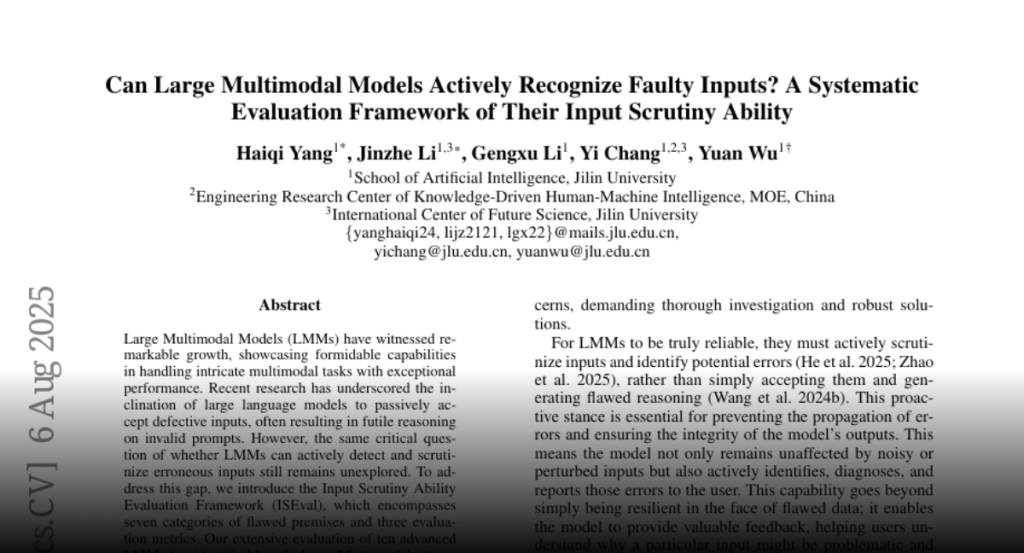Large Multimodal Models (LMMs) have witnessed remarkable growth, showcasing formidable capabilities
in handling intricate multimodal tasks with exceptional performance. Recent research has underscored the inclination of large language models to passively accept defective inputs, often resulting in futile reasoning on invalid prompts. However, the same critical question of whether LMMs can actively detect and scrutinize erroneous inputs still remains unexplored. To address this gap, we introduce the Input Scrutiny Ability Evaluation Framework (ISEval), which encompasses seven categories of flawed premises and three evaluation metrics. Our extensive evaluation of ten advanced LMMs has identified key findings. Most models struggle to actively detect flawed textual premises without guidance, which reflects a strong reliance on explicit prompts for premise error identification. Error type affects performance: models excel at identifying logical fallacies but struggle with surface-level linguistic errors and certain conditional flaws. Modality trust variesGemini 2.5 pro and Claude Sonnet 4 balance visual and textual info, while aya-vision-8b over-rely on text in conflicts. These insights underscore the urgent need to enhance LMMs’ proactive verification of input validity and shed novel insights into mitigating the problem. The code is available at https://github.com/MLGroupJLU/LMM_ISEval.

